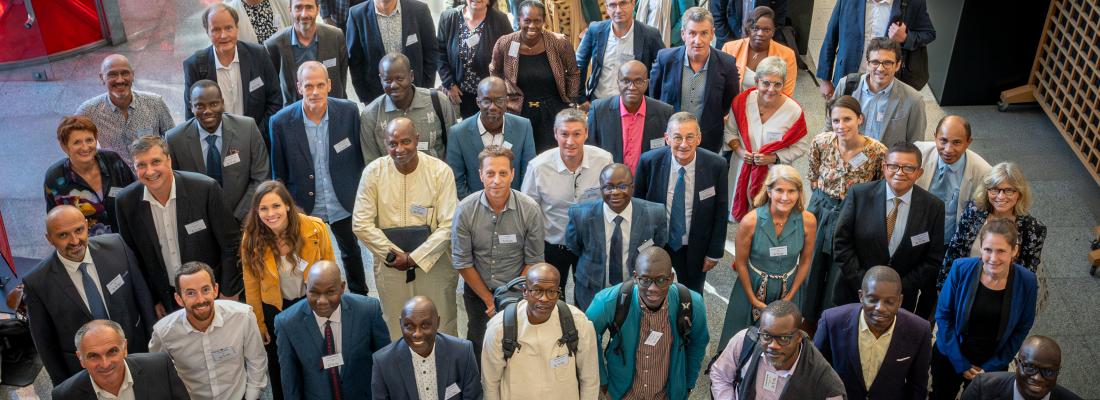Bioeconomy Reading time 3 min
An African-French UNESCO Chair for better use of natural resources and waste
Published on 28 September 2023


This project, led by INSA Toulouse, brings together 6 universities in 6 African countries, 7 French higher education and research institutions as well as transfer centres and technological platforms. This team forms a UNESCO Chair and receives financial support from the French Development Agency (AFD), the CNRS and INRAE. At the same time, the Avenir Afrique Foundation, hosted by the CNRS Foundation, is responsible for promoting and supporting the activities of the IDBio Chair.
IDBio (Sustainable Engineering for Bio-based Products) is a project that aims to make better use of natural resources and waste, and to reduce poverty and food insecurity. It aims to generate economic benefits through co-developed skills that promote the employability of Africans in emerging and sustainable business sectors.
"The IDBio Chair fits in perfectly with INRAE's priorities in terms of both the bioeconomy and cooperation with African academic partners. These are structured by the TSARA programme “Transforming Food and Agricultural Systems through Research in Partnership with Africa” alongside CIRAD. One of TSARA’s themes concerns in fact sustainable bioeconomy", emphasises Jean-François Soussana, INRAE's Vice-President of international policy.
IDBio's main objectives are to:
- create a new training course, with short theoretical and practical modules at undergraduate level for students and professionals as well as a vocational Master's degree;
- train through research supported by doctoral grants and intra-Africa and Africa-France mobility;
- equip a technology hall dedicated to practical work for initial and continuing training, as well as to R&D and service activities, technology transfer, innovation, proof of concept and batch production.
The IDBio project joins the network of higher education partnerships initiated by the "Partnerships with African Higher Education" programme funded by the French Development Agency (AFD), and implemented by the French National Research Agency (ANR) and Campus France with the support of the French Ministry for Europe and Foreign Affairs (MEAE), the French Ministry of Higher Education and Research (MESR) and Campus France. It fulfils France's political desire to double the number of partnerships between African and French higher education establishments through a resolutely symmetrical approach, focusing on the mutual interests of the academic communities. Launched in 2020, this pilot programme supports the creation of high-quality training programmes on the African continent, on a peer-to-peer basis. Offered from bachelor's to doctoral level, these courses help to strengthen and professionalise higher education in Africa. Its ambition: to train multicultural leaders, committed players who will leave a lasting mark on a world in transition.
IDBio partners
> In Africa: Gaston Berger University, Saint Louis, Senegal / University of Abomey-Calavi, Cotonou, Benin / University of Lomé, Togo / University Joseph Ki Zerbo, Ouagadougou, Burkina Faso / University of Antananarivo, Madagascar / the National Polytechnic Institute Houphouët-Boigny, Yamoussoukro, Ivory Coast
> In France: National Institute of Applied Sciences INSA Toulouse, Toulouse National Polytechnic Institute INP, Mines-Telecom Institute IMT Albi, Institut Agro Montpellier, French agricultural research and international cooperation organization CIRAD, CNRS, INRAE, Regional Center for Innovation and Transfer of Technologies Catar, BioIndustries and GPTE, as well as the Agromat, Gala and Valthera platforms.
